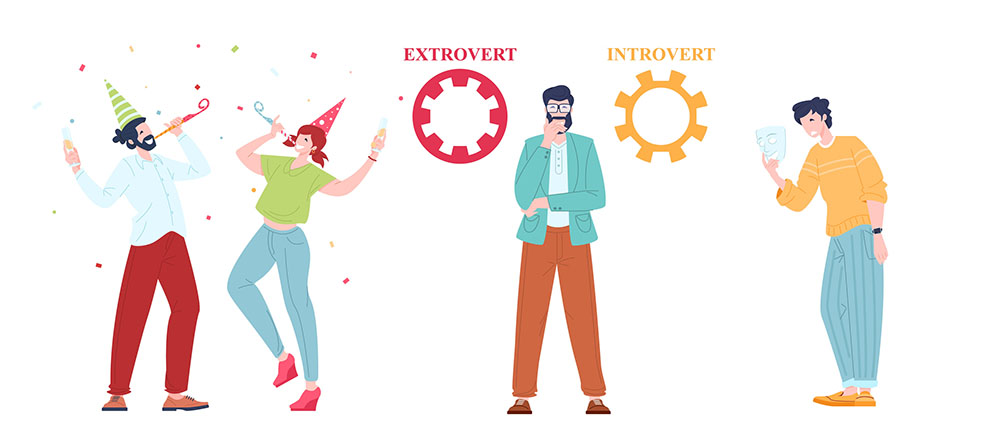
Extraverts and introverts approach social situations such as meetings, conferences and networking differently, leading organisations to see extraverts as assertive, confident and leader-like and to potentially overlook the talents of introverts.
- People high in introversion tend to forecast that future social situations will be unpleasant
- Study finds this is not due to worry or anxiety
- Employers should be mindful of the 'quieter' employers who may need to be invited to share their views
- Introverted leaders often empower their team members
QUT Business School's Dr Andrew Spark and Professor Peter O'Connor study effects of the Big Five Personality traits (extraversion, agreeableness, conscientiousness, openness and neuroticism) on people in the workplace and organisations.
Dr Spark said that his recent research considered how a person's personality profile affected the way they expected to feel in social situations.
"In the context of social situations, emotion forecasting may play an important role in facilitating social behaviour and, ultimately, well-being," Dr Spark said.

"Defining someone as an extravert or introvert is difficult because extraversion is a continuum. Nevertheless, it is reasonable to say that only about 15-20 per cent of people are standout introverts, 15-20 per cent are extroverts, and everyone else is somewhere in the middle.
"In our research we found that people who are 'quiet', or high in 'introversion' are more likely to think future social situations will be unpleasant, distressing or embarrassing and therefore tend to avoid them.
"For this study, we told more than 200 groups of three or four study participants that they would be doing an unstructured group task and asked them how unpleasant they thought the situation would be.
"We wanted to investigate whether neuroticism – a trait characterised by negative emotions like anxiety and worry – might predict which participants would forecast the task to be unpleasant.
"We found that it was the introverts who most strongly believed the task would be unpleasant.
"Our findings have implications for businesses wanting to tap into the talents of their quieter employees, especially because introverts tend to be servant leaders – they empower their team members.

"Introverts might need to be invited to speak or given time to prepare their ideas before presenting to a wider group."
Dr Spark said the study disproved the notion that introverts' reluctance to engage in social situations was due to neuroticism.
"We know that for actual experienced emotion, extraversion is a strong predictor of positive emotion and neuroticism is a strong predictor of negative emotion," he said.
"However, when it comes to forecasted emotion, our study found extraversion alone predicts forecasted emotion.
"This means that the fact introverts think more negatively about future social situations is not related to worry or anxiety, as most commonly assumed.
"Although we are not entirely sure why introverts think differently about social situations, one possibility is that the extraverted brain processes social reward more easily.
"Extraverts have few barriers to social interaction – it seems they have little stopping them from getting stuck into social situations.
"Extraverts have a high positive emotion baseline to start from and they are more sensitive to reward. They like social attention and find it rewarding."
The study Extraversion rather than neuroticism is the dominant trait predictor of forecasted affect in relation to social situations was published in the journal Personality and Individual Differences.






